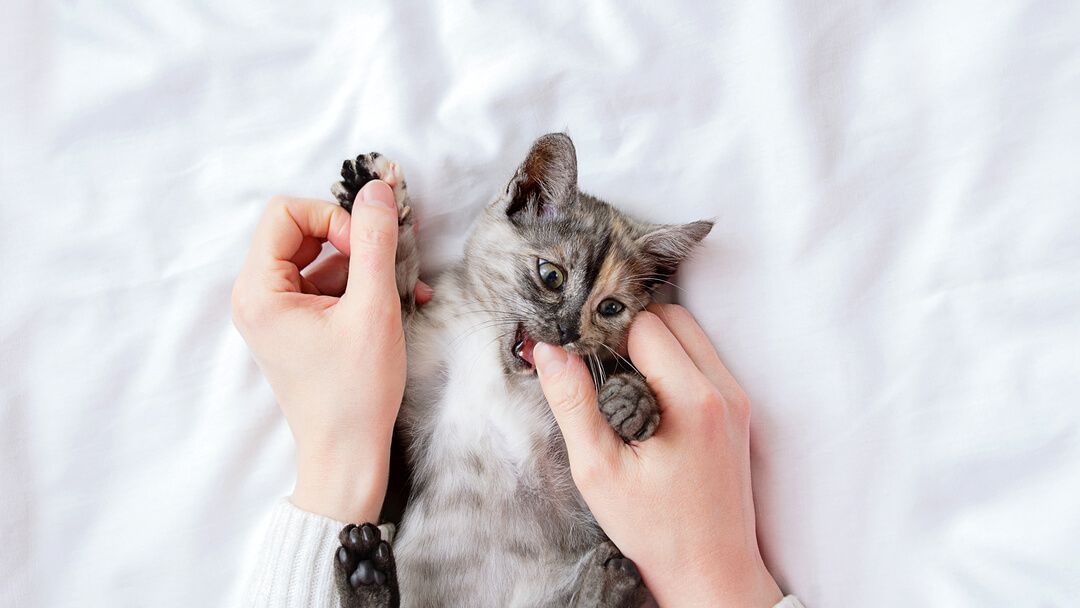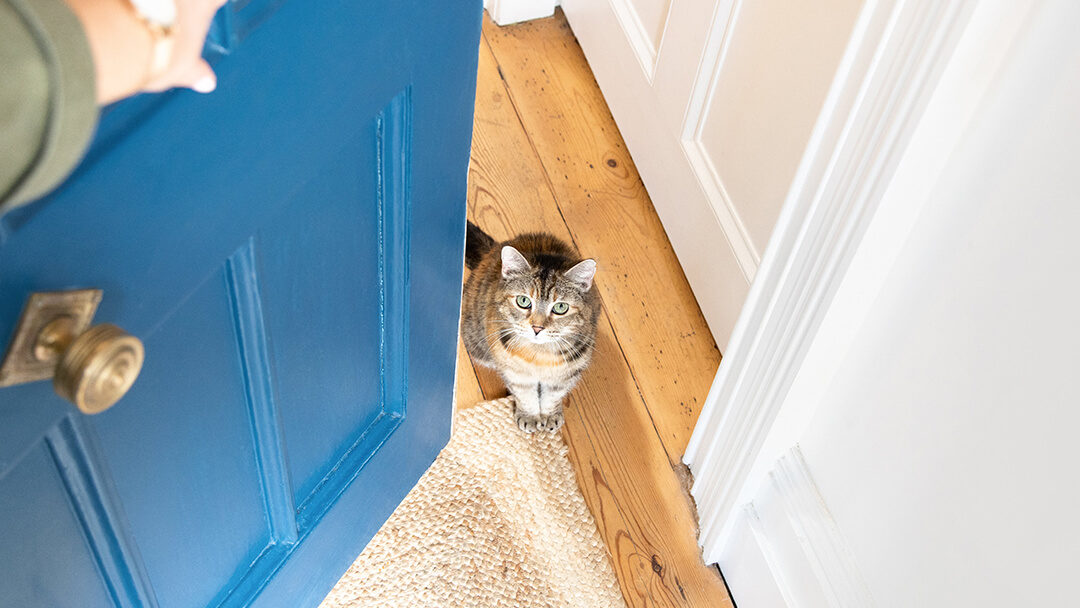

As your cat enters their senior years, you’re likely to notice some changes in their health, appearance, and behaviour. Ageing is, of course, a completely normal process.
Just like us, senior cats may have less energy, be interested in different things, and experience age-related conditions such as arthritis. These changes are to be expected, and with some adjustments to their care (as well as regular check-ups with the vet) they should enjoy their senior years to the full.
However, some senior cats may also undergo changes in their behaviour. Perhaps they don’t like playing anymore, they avoid being touched, or they even behave aggressively. Others may seem unusually confused, particularly if there are unexpected environmental changes. But how much of this is a normal part of ageing, and when is it time to see a vet?
Read on to find out more about caring for old cats and how to spot any behaviour changes.
Forgetting litterbox training
If your usually fastidious cat begins to urinate in places other than their litterbox, it may be down to age-related changes. Elderly cats may seem to forget their years of training; this is called ‘cognitive dysfunction’, although many people think of this as a form of ‘cat dementia’.
When this happens, your cat may be confused about where the litterbox is, or forget where they are supposed to urinate or defecate. There is very little you can do about this, apart from making it as easy as possible for your cat to find their litterbox. For example, if they always urinate in the same place, try moving the litterbox there. If they still don’t go to their litterbox, patience and understanding are key.
However, urinating or defecating in inappropriate places can also be a sign of several other conditions, such as feline urinary tract infections, constipation, or even eyesight loss. For this reason, you should always take your cat to the vet for a check-up before assuming their new behaviour is down to age-related confusion.
Confusion or disorientation
Confusion is another symptom of feline cognitive dysfunction. As well as forgetting their litterbox training, elderly cats with this condition may be more vocal, appear disorientated, or experience changes in their personality.
They may interact with people and other animals less, and show less interest in their environment.
Whilst little can be done about feline cognitive dysfunction, in order to provide care for old cats, it’s important that you make sure your older cat feels as safe and secure as possible, and that you are patient with their new behaviour. If in doubt, take them to see a vet, as some behavioural changes have symptoms that can be treated or managed.
Not responding to loud noises or their name
If you notice that your senior cat no longer comes running when you call their name, or they no longer respond to unusual or loud noises, your cat may be experiencing hearing loss.
They probably haven’t ‘forgotten’ their name or become immune to unusual sounds – they simply can’t hear them very well! Deaf cats can often make up for their lack of hearing by using their other senses, so it’s easy for their deafness to go otherwise unnoticed. Other symptoms of deafness due to natural hearing loss may include loud meowing or some disorientation.
If you think your old cat’s behaviour is out of character and that they are having problems with their hearing, take them to see the vet to check that they don’t have an ear infection or another solvable condition.
Sleeping more or less than usual
Another sign of old cat behaviour is a change in their sleeping habits. Elderly cats may sleep far more than they used to. This is usually because they simply have a little less energy. Make sure they have somewhere quiet and peaceful to sleep, and let them doze whenever they want to. When caring for old cats, is it important to ensure their diet is adjusted to match their changing energy levels to ensure they are not consuming too many calories. You might want to try a specially formulated senior cat food, such as Pro Plan Adult 7+ Salmon & Tuna Dry Cat Food.
Alternatively, some elderly cats may appear to sleep less during the night, and may even be restless. This is often because they are sleeping more during the day. As long as they are getting enough sleep overall, there’s nothing to worry about. However, if in doubt, always check with a vet.
Playing less
Another common old cat behaviour is changed interest in playing. Maybe their favourite toy doesn’t seem to interest them anymore, or they get bored quickly and prefer to nap. This can be disappointing, or even concerning, but a slowly changing interest in play is very normal in older cats.
Younger cats, particularly kittens, use play as a way to explore the world and express their instincts. Senior cats have less need to do this; combine it with their changing energy levels, and they may simply not feel like playing.
Decreasing interest of play is often normal in senior cats. However, if the change in behaviour is very sudden or dramatic, consult a vet to check that nothing else is wrong.
Eating differently
Cats are generally fussier with their food than dogs – that’s a fact of life! However, if your senior cat is particularly off their food, it may be a sign that age-related changes are affecting their appetite.
Lack of interest in food may be down to a number of common dental conditions which make eating uncomfortable, or it may be that they are feeling ill. For this reason, it’s best to consult a vet who will be able to investigate further. On the other hand, your senior cat may have an increased appetite (or increased thirst). Sometimes this can be down to a condition such as diabetes or hyperthyroidism; again, a vet will be able to investigate.
While some changes in appetite may be normal (for example if your cat’s activity levels have dropped and they need less food to be satisfied) it’s always best to check with a professional.
Aggression
If your elderly cat has become more aggressive towards you or other animals, there may be an underlying age-related cause. If they have become very set in their ways, they may have less patience for changes to their routine or usurpers in the house.
On the other hand, their aggression could also be caused by them feeling ill; if you think something might be wrong, take them to see a vet.
Caring for old cats can at times be worrying and very stressful. Don’t hesitate to speak to your vet if you notice any unusual and out of character behaviour.
Featured products
Related articles















